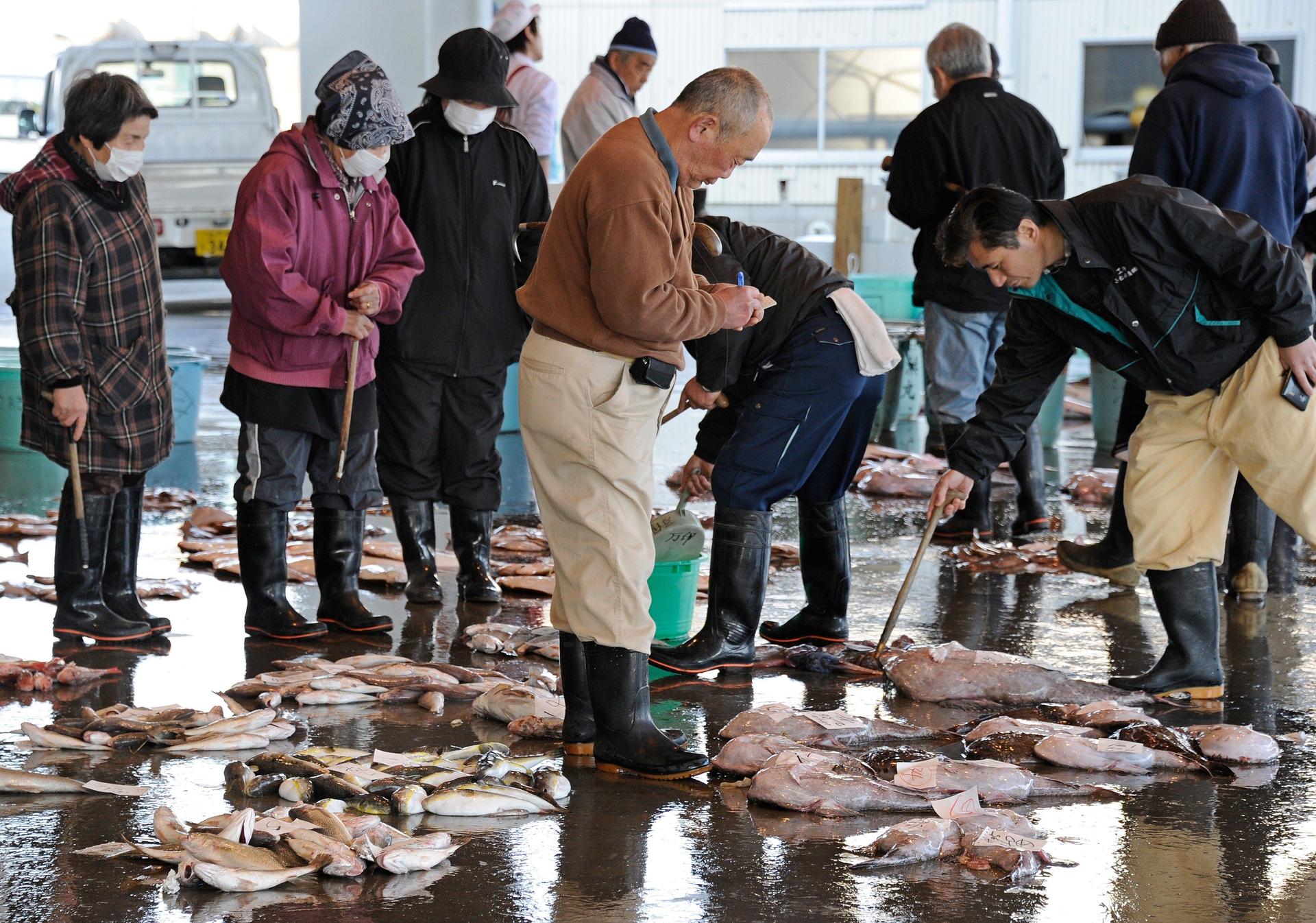Radioactive fish found near stricken Japan nuclear plant (VIDEO)
Brokers check fish at the Hirakata Fish Market in Kitaibaraki, Ibaraki Prefecture, trading for the first time since the March 11 earthquake and tsunami disaster, on April 5, 2011. The health ministry said that iodine-131 at a level of 4,080 becquerels per kilogram had been detected in a small fish called konago, or sand lance, caught off Ibaraki prefecture, south of the plant.
Radiation levels exceeding health guidelines have been found in fish caught off Japan, as Tokyo Electric Power (Tepco) dumped tainted water into the ocean to gain control of its crippled nuclear plant.
Officials said they had detected high levels of radioactive iodine and cesium in sand lace fish caught in the Pacific Ocean near the stricken Fukushima Dai-ichi nuclear power plant, according to the Daily Mail. The company has reportedly said that 7.5 million times the legal limit of radioactive iodine has been detected in samples of sea water near the plant, Kyodo News Agency reported.
Fishing has been banned near the plant since the March 11 earthquake and tsunami caused four of the six nuclear reactors at Fukushima to overheat.
The authorities in Ibaraki urged people to stop eating fish, while fisheries minister Michihiko Kano said the government would toughen inspections of marine products caught in the area.
Cesium radioactivity in fish was reportedly 526 becquerel per kilogram, compared with a health ministry standard of 500 becquerel, Makato Osodo, of the Ibaraki prefectural government, told Bloomberg.
Representatives of the local fishing industry have asked Tepco to stop dumping radioactive water into the sea. Fukushima Prefectural Federation of Fisheries Co-operative Associations also reportedly wants the plant operator to compensate fishermen, as the dumping casts doubt over the future of fishing in the region.
The Japanese government has imposed new radiation level standards for seafood, and all fishing of sand lace has been suspended, raising fears the price of seafood will increase.
Sushi restaurants worldwide have reportedly been dropping Japanese fresh food from their menus due to radiation fears.
The Fukushima plant made its first Pacific Ocean dump on Apr. 3 because radioactive water on reactor site was hindering repair of cooling pumps.
Koichiro Nakamura, a deputy director general of Japan's Nuclear and Industrial Safety Agency said the measure was required to avoid a more serious risk.
Dumping water with low levels of radioactivity supposedly frees up room to store more highly radioactive water leaking at the site.
A senior Japanese nuclear official said in Vienna on Monday that Tepco needed to discharge a total of 11,500 tons of low-contaminated water into the ocean, Reuters reported.
Every day, reporters and producers at The World are hard at work bringing you human-centered news from across the globe. But we can’t do it without you. We need your support to ensure we can continue this work for another year.
Make a gift today, and you’ll help us unlock a matching gift of $67,000!
